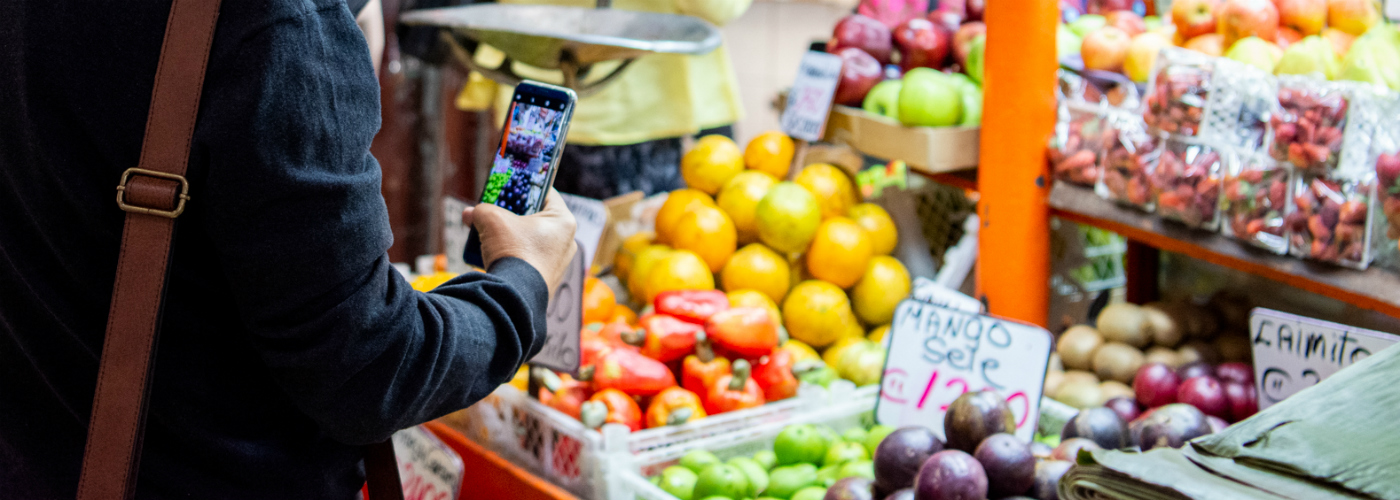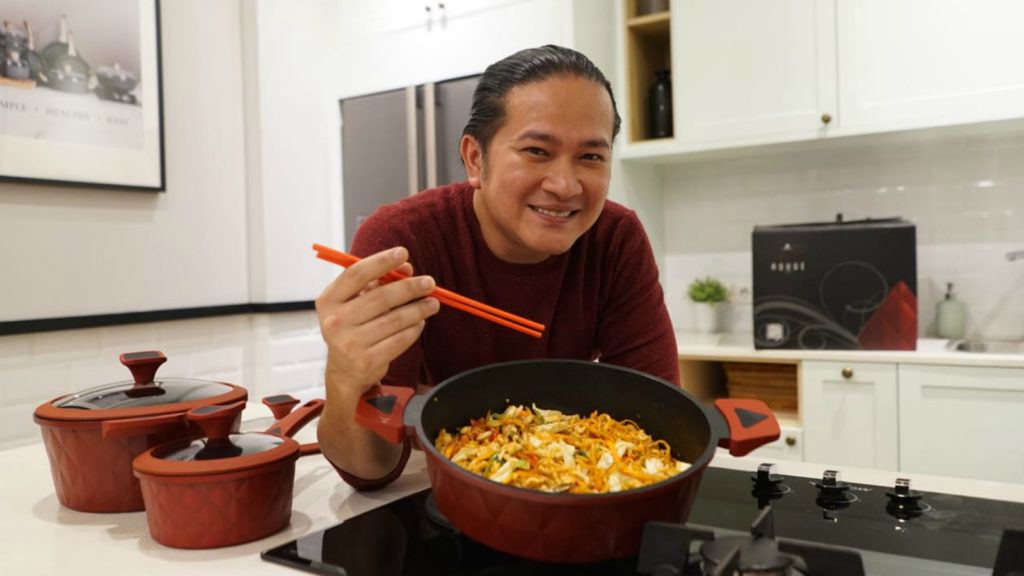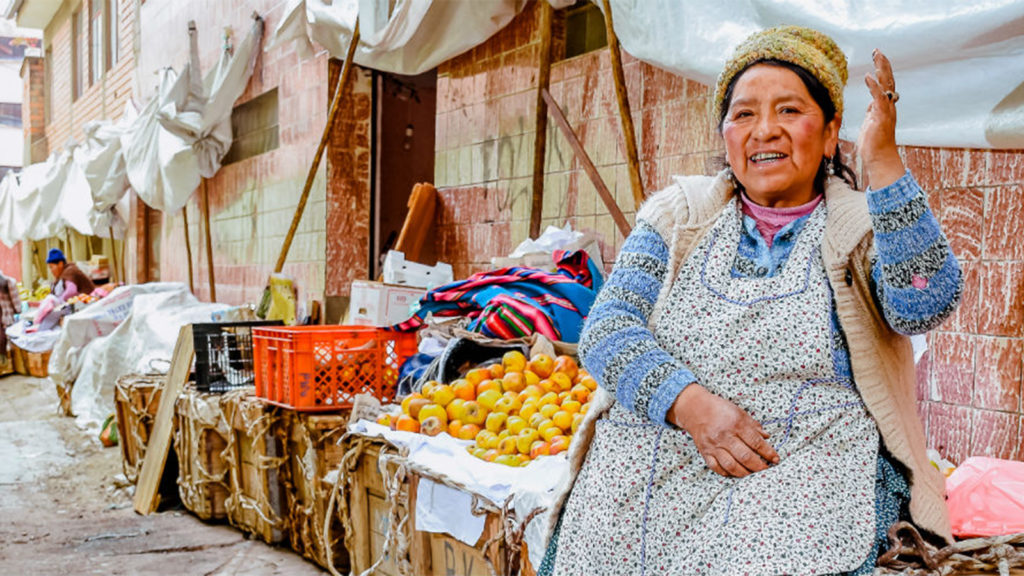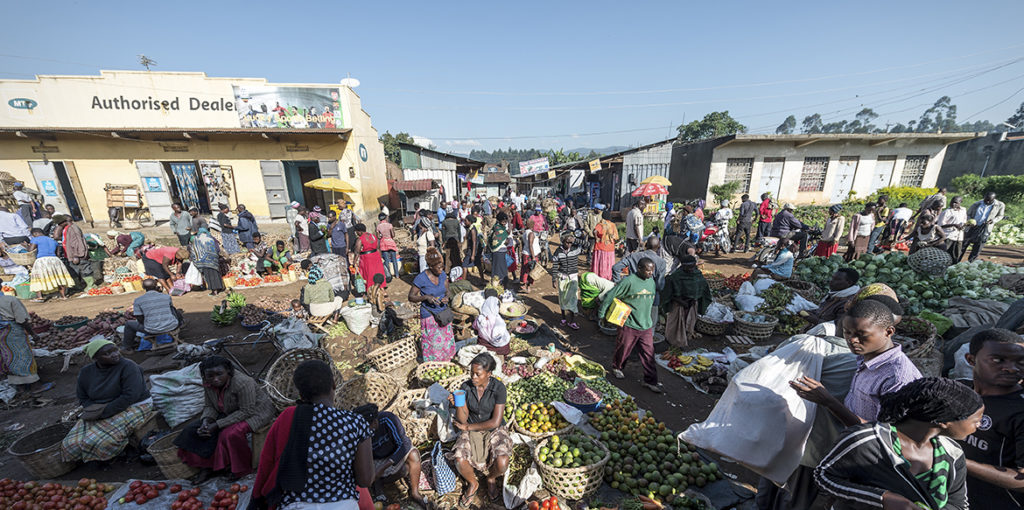Healthy, sustainable and inclusive gastronomy: a new ally in the shift towards sustainable food systems
By Carmen Torres, Sustainable Food Program Development Manager for Latin America & the Caribbean
We all need to eat, (hopefully) three times a day. Demand for food is steady and constantly growing. Selling the right food product for the right price at the right place is a perfect recipe for business success.
But this has led to a global food system that prioritizes profit over social, health and environmental concerns. The result is staggering: poor health, loss of biological and cultural diversity, socio-economic exclusion, environmental degradation, climate change.
It’s not true our food system is broken, it’s just pointing in the wrong direction.
Lawrence Haddad, GAIN Executive Director, world food prize co-winner 2018
Since food is such good business, the economic forces shaping our current food systems are extremely powerful and dictate to a large extent what is produced, where and how. In other words, what we eat.
“Dominant agri-food firms have become too big to feed humanity sustainably, too big to operate on equitable terms with other food system actors, and too big to drive the types of innovation we need.” IPES report “Too big to feed”
Cooking up sustainable food systems
One of the biggest trends in current food consumption is the slow but steady decline of cooking. How are people getting their food? Mostly from processed, pre-packaged, convenient, cheap, unhealthy food products made and sold by companies. We are also seeing a shift towards ever more homogeneous diets. According to recent studies, 75 percent of the world’s food is generated from only twelve plants and five animal species.
Nevertheless, not everyone is putting their stoves, ovens, kitchen counters and cutting boards into storage. Home cooking is still being done in many places by a diverse constellation of formal and informal actors in the world’s vast “gastronomic galaxy.”
A strong gastronomy sector, linked to healthy consumption habits and sustainable production systems, can counteract the current negative trends.
Women, the change makers
At Hivos, we believe that people – cooks, street food vendors, caterers, home-based retailers and food entrepreneurs – can drive the much-needed change in our food systems. This is particularly true of women, who play a key role producing, selling, buying, cooking and distributing most of the food we eat. This means women could also be a main public source of dishes that are not only tasty and affordable, but also nutritious, healthy, and safe. Whether on the street, in markets, at working places, in shopping malls, in school canteens, and many other places where we eat or buy food.
Women are therefore poised to be our “food system change agents.” They can safeguard local food cultures and heritage, while at the same time promoting healthy diets with a responsible balance between animal-based and plant-based food. Their choices can stimulate fair, sustainable and diverse food production and contribute to local food systems that minimize food losses and waste and help protect the environment.
Forgetting the world’s biggest private sector
“It is high time we address the elephant in the room: how to involve the informal food sector (small enterprises, food vendors, market sellers, and others), which is the world’s biggest private sector? Are we taking their voices into account? Frank Mechielsen, Program Manager Sustainable Diets for All, Hivos
Income from selling street food and home-based food retailing constitutes an important livelihood in cities, especially for women. The informal sector provides easy access to nutritious, tasty and low-cost food, in particular for the urban poor. We can look at food vendors as bridges towards more sustainable and inclusive food systems.
However, the informal food sector is usually not included in dialogue and decision-making spheres. It does not get access to micro-financing or social protection. Street food vendors are often hounded and chased away by local authorities. And because these vendors are mostly women, much of women’s work is made invisible to policy and decision makers.
So… what’s cooking?
Last week, Costa Rica hosted the One Planet Network’s (10YFP) 2nd Global Conference of the Sustainable Food Systems Programme under the theme “Good Food for People and the Planet – Working together towards 2030”. Hivos co-leads this amazing global initiative along with WWF, the Department of Trade and Industry (South Africa) and the Federal Office for Agriculture (Switzerland).
During the two days before the conference, we brought many actors together – from Peru to Denmark and from Kenya to Costa Rica – to attend a sustainable, healthy and inclusive gastronomy workshop. This video captures their commitment, passion and energy:
We also presented a photo exhibit of the voices and choices of Bolivian women. This is a movement that is changing the way people produce and consume food in many Andean cities. But real cooking was also on the menu. We organized a dinner event that served local, sustainable, diverse, colorful, delicious dishes prepared by renowned international and local chefs.
At the conference, we presented our plan to work together at the local, national and global level. This consists of a call to action involving three concrete immediate steps: establish a learning platform to collect and exchange innovative ideas and best practices; create a comprehensive mapping of gastronomy-related actors and agree on a common language and vocabulary, including global storytelling.
Join our “revolution from the kitchen”!
Cooking is the powerful “hinge” between sustainable and inclusive food production and food consumption. It is creativity, it is culture, it is joy, and it is life. Cooking is the celebration and respect of traditions and cultural heritage, but also a catalyzer for innovation. A meal can tell a story about a unique history, lifestyle, and value system; and about our hopes, dreams and beliefs.
Join our global movement and tell us (via https://twitter.com/CarmenTorresL) what immediate steps you want to take to join our call to action. What else do we need to do to “cook for our future”?
So proud 2 be part of @HivosAmLatina @hivos Sustainable Food team! ??❤️ This is us @10YFP @SFoodSystems conf. in #CostaRica @myrtilledanse @jpsolisv @collaogr @nixbol @consuemb @ArianaAraR @FrankMechielsen @NoutvanderVaart Want 2 know + abt our work? ➡️https://t.co/mXRlgD5cxH pic.twitter.com/1Tk1H070s6
— Carmen Torres Ledezma (@CarmenTorresL) February 6, 2019
See you in the kitchen!




